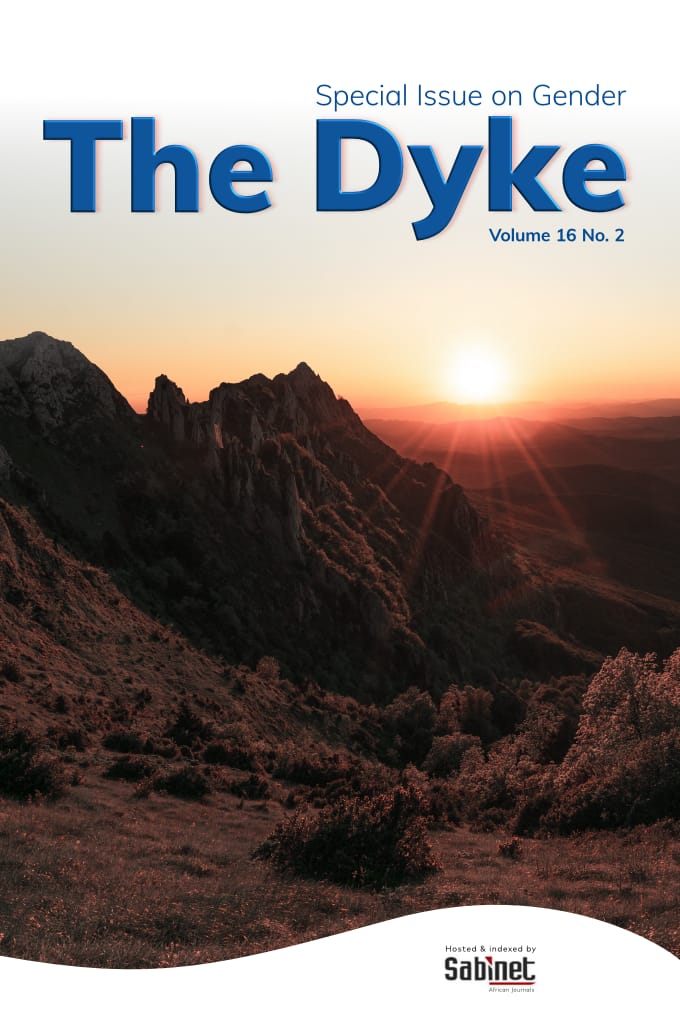Foreword to The Dyke Special Issue 4, Gender
DOI:
https://doi.org/10.64754/thedyke.v16i2.253Keywords:
Gender-based violence, higher and tertiary, research, sexual harrassmentAbstract
The Midlands State University Gender Institute hosted a Conference from the 5th to the 6th of October 2022, themed Combating Gender-Based Violence in Tertiary Institutions resulting in the production of this special issue of The Dyke Journal. Herein are a collection of research-based papers on Gender-Based Violence and Sexual Harassment in Institutions of Higher Learning in Zimbabwe. In this Special Issue, 4 of The Dyke Journal, are articles authored by researchers from universities polytechnics, and a teacher education college in Zimbabwe. In their quest to create awareness of the importance of gender in research in higher education, the authors tackle Gender Based Violence (GBV) and Sexual Harassment (SH), a specific form of GBV, in Institutions of Higher Learning (IHL) in Zimbabwe.
References
Ademiluka, S. O. (2018). Patriarchy and women abuse: Perspectives from ancient Israel and Africa. Old Testament Essays, 31(2), 339-362. https://doi.org/10.17159/2312-3621/2018/v31n2a5.
Cuxart, M. P., Roldán, S. M., Gismero, E., & Tellado, I. (2021). Evidence of gender violence negative impact on health as a lever to change adolescents’ attitudes and preferences towards dominant traditional masculinities. International Journal of Environmental Research and Public Health, 18(18). https://doi.org/10.3390/ijerph18189610.
Hadi, A. (2017). Patriarchy and Gender-Based Violence in Pakistan. European Journal of Social Science Education and Research, 4(4), 205–212.
Hu, Q., & Cheong, P. H. (2021). Understanding Digital Generations: Social Media Habitus, Memetic Engagements, and Digital Social Inequalities in China. In International Journal of Communication (Vol. 15). http://ijoc.org.
Javed, S., & Kumar Chattu, V. (2021). Patriarchy at the helm of gender-based violence during COVID-19. AIMS Public Health, 8(1), 32–35. https://doi.org/10.3934/publichealth.2021003.
Lodge, A. (2005). Gender and children’s social world: Esteemed and Marginalised masculinities in the primary school playground. Irish Journal of Sociology, 14(2), 177–192. https://doi.org/10.1177/079160350501400210.
Nansubuga, F., & Munene, J. C. (2020). Awakening the Ubuntu episteme to embrace knowledge management in Africa. Journal of Knowledge Management, 24(1), 105–119. https://doi.org/10.1108/JKM-09-2018-0603.
Sida. (2015). Gender-Based Violence and Education. Sida.
Swartz, E. (1997). Ubuntu-the spirit of African transformation management a review. Organization Development Journal, 18(6), 290–294.
Tutgun-Ünal, A. (2021). Social Media Generations’ Levels of Acceptance of Diversity 1. In TOJET: The Turkish Online Journal of Educational Technology (Vol. 20, Issue 2). http://www.tdk.org.tr.
Wall, T. (2016). Reviving the ubuntu spirit in landscapes of practice: evidence from deep within the forest. Journal of Work-Applied Management, 8(1), 95–98. https://doi.org/10.1108/JWAM-10-2016-0018.

Downloads
Published
How to Cite
Issue
Section
License
All articles in The Dyke are published under the Creative Commons Attribution 4.0 International License (CC BY 4.0).
Under this licence:
- Others may copy, redistribute, remix, transform, and build upon the work for any purpose, even commercially.
- Appropriate credit must be given to the original author(s) and source (The Dyke), along with a link to the license.
- Any changes made must be indicated.
Full licence details: https://creativecommons.org/licenses/by/4.0/
Archiving and Preservation
The Dyke supports long-term preservation of scholarly work through partnerships with digital repositories and indexing services, including Sabinet African Journals. Authors are also encouraged to deposit a copy of their published article in institutional or subject-specific repositories.




